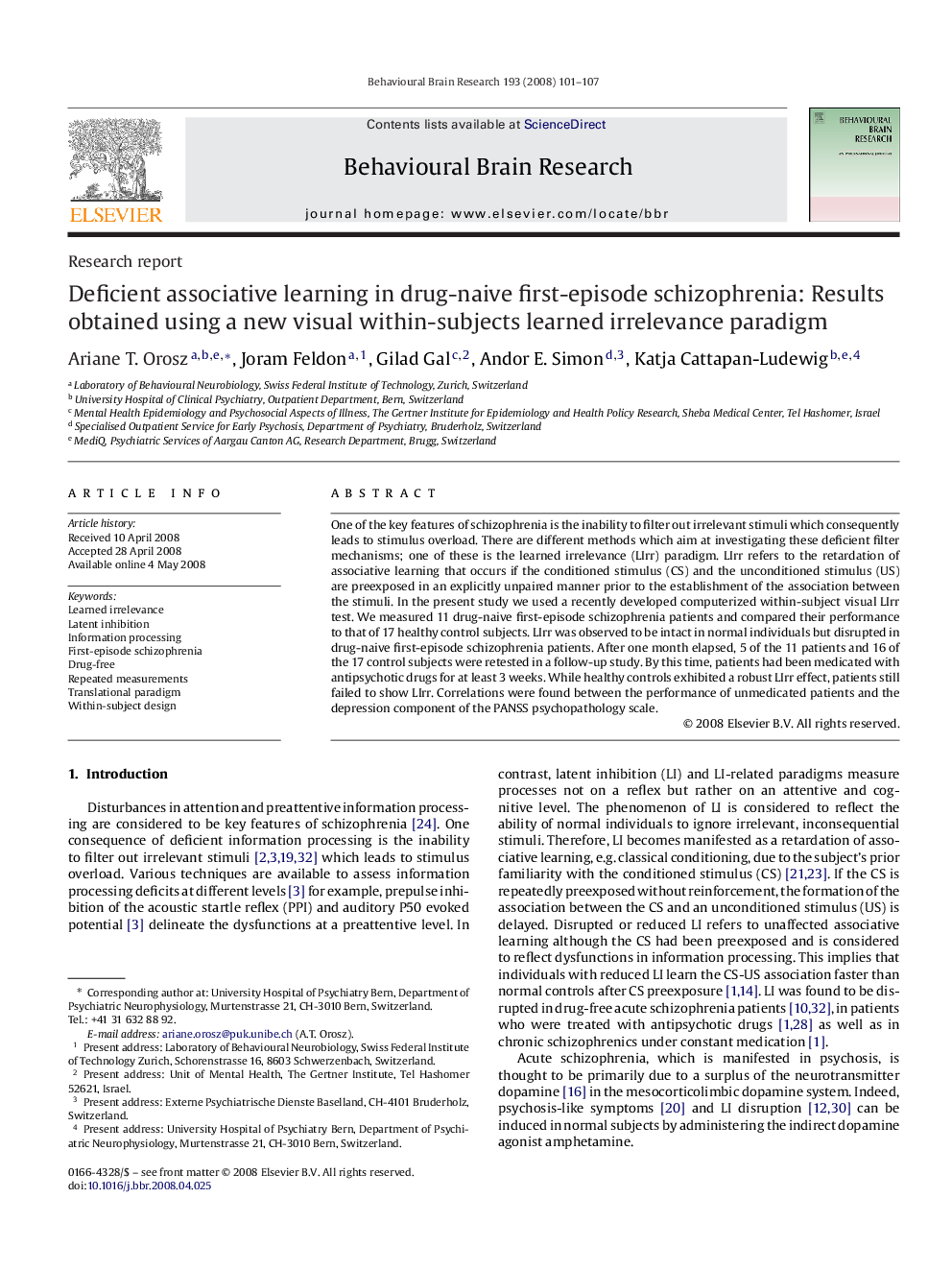| کد مقاله | کد نشریه | سال انتشار | مقاله انگلیسی | نسخه تمام متن |
|---|---|---|---|---|
| 4315149 | 1290064 | 2008 | 7 صفحه PDF | دانلود رایگان |

One of the key features of schizophrenia is the inability to filter out irrelevant stimuli which consequently leads to stimulus overload. There are different methods which aim at investigating these deficient filter mechanisms; one of these is the learned irrelevance (LIrr) paradigm. LIrr refers to the retardation of associative learning that occurs if the conditioned stimulus (CS) and the unconditioned stimulus (US) are preexposed in an explicitly unpaired manner prior to the establishment of the association between the stimuli. In the present study we used a recently developed computerized within-subject visual LIrr test. We measured 11 drug-naive first-episode schizophrenia patients and compared their performance to that of 17 healthy control subjects. LIrr was observed to be intact in normal individuals but disrupted in drug-naive first-episode schizophrenia patients. After one month elapsed, 5 of the 11 patients and 16 of the 17 control subjects were retested in a follow-up study. By this time, patients had been medicated with antipsychotic drugs for at least 3 weeks. While healthy controls exhibited a robust LIrr effect, patients still failed to show LIrr. Correlations were found between the performance of unmedicated patients and the depression component of the PANSS psychopathology scale.
Journal: Behavioural Brain Research - Volume 193, Issue 1, 3 November 2008, Pages 101–107